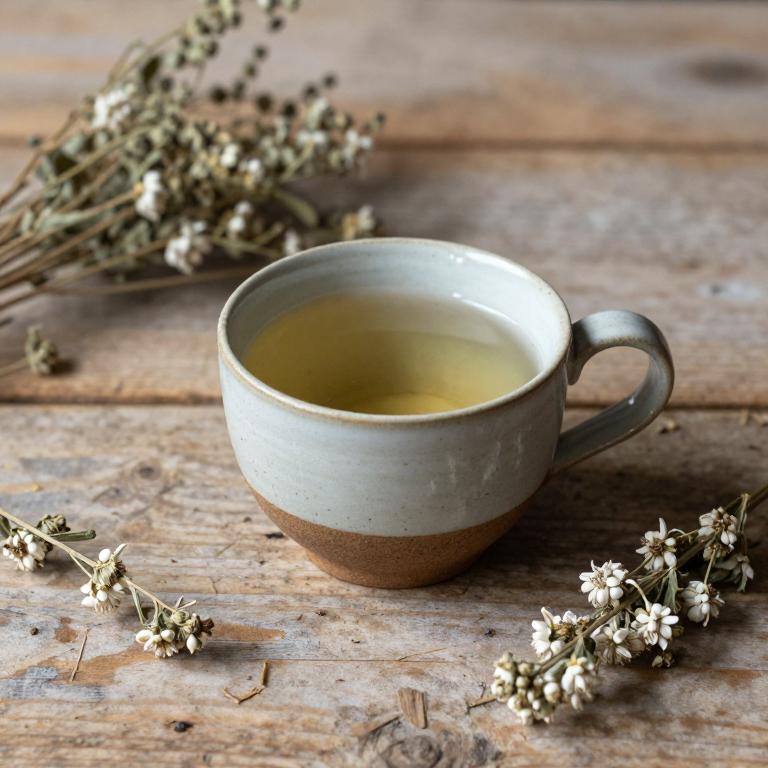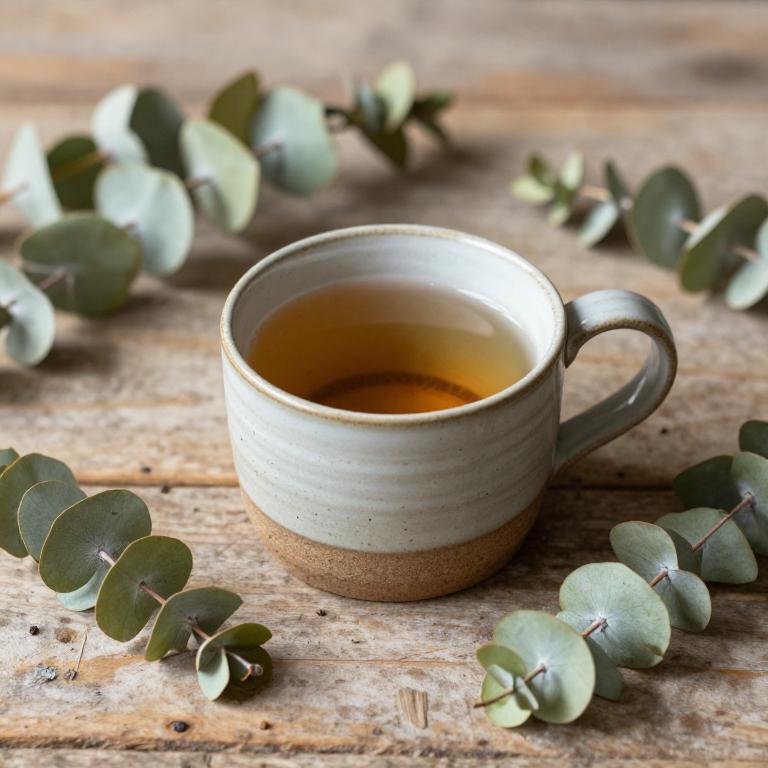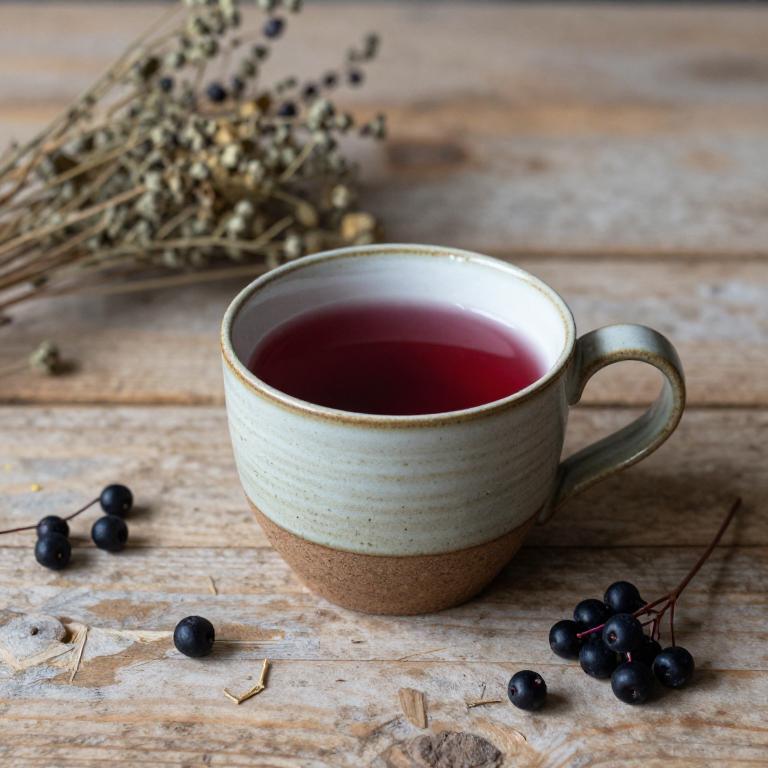10 Best Herbal Teas For Sinusitis

Herbal teas can be a natural and effective complementary treatment for sinusitis, offering soothing relief from congestion and inflammation.
Commonly used herbs such as eucalyptus, ginger, peppermint, and chamomile are known for their decongestant and anti-inflammatory properties. These teas work by helping to reduce mucus production, ease nasal passages, and promote drainage, thereby alleviating sinus pressure and discomfort. They are generally safe for most people, though individuals with allergies or specific health conditions should consult a healthcare provider before use.
Incorporating herbal teas into a daily routine, along with steam inhalation and hydration, can support overall sinus health and aid in recovery from sinusitis.
Table of Contents
- 1. Salvia (Salvia officinalis)
- 2. Thyme (Thymus vulgaris)
- 3. Stinging nettle (Urtica dioica)
- 4. Rosemary (Rosmarinus officinalis)
- 5. Peppermint (Mentha piperita)
- 6. Catnip (Nepeta cataria)
- 7. Eucalyptus (Eucalyptus globulus)
- 8. Ginger (Zingiber officinale)
- 9. Black elderberry (Sambucus nigra)
- 10. Fennel (Foeniculum vulgare)
1. Salvia (Salvia officinalis)

Salvia officinalis, commonly known as sage, is a herbal plant that has been traditionally used for its medicinal properties, including its potential benefits for sinusitis.
Herbal teas made from sage leaves are often consumed to help alleviate symptoms such as nasal congestion and inflammation due to their antimicrobial and anti-inflammatory effects. The essential oils in sage, particularly thujone and camphor, may help reduce mucus production and improve respiratory function. Sage tea can be prepared by steeping dried leaves in hot water, and it is often recommended as a natural remedy to support sinus health.
However, it is important to consult with a healthcare professional before using sage tea, especially for individuals with existing medical conditions or those taking medications.
2. Thyme (Thymus vulgaris)

Thymus vulgaris, commonly known as thyme, is a popular herb used in herbal teas to support respiratory health, including the relief of symptoms associated with sinusitis.
The essential oils in thyme, particularly thymol, possess strong antimicrobial and anti-inflammatory properties that can help reduce nasal congestion and combat bacterial or viral infections. When brewed into a tea, thyme can soothe the throat and ease breathing, making it a natural remedy for those suffering from sinus inflammation. However, it is important to consult with a healthcare professional before using thyme tea, especially for individuals with allergies or those taking medications.
While thyme herbal tea may offer symptomatic relief, it should not replace conventional medical treatments for more severe or persistent sinusitis.
3. Stinging nettle (Urtica dioica)

Urtica dioica, commonly known as stinging nettle, has been traditionally used in herbal medicine for its anti-inflammatory and immune-boosting properties.
When prepared as a herbal tea, it may help alleviate symptoms of sinusitis by reducing nasal congestion and inflammation in the sinuses. The tea is typically made by steeping fresh or dried leaves in hot water, and it can be consumed several times a day for best results. While some studies suggest its potential benefits, more research is needed to confirm its efficacy for sinusitis specifically.
As with any herbal remedy, it is advisable to consult a healthcare professional before use, especially for those with existing health conditions or taking medications.
4. Rosemary (Rosmarinus officinalis)

Rosmarinus officinalis, commonly known as rosemary, is a popular herb used in herbal teas to support respiratory health, particularly in the treatment of sinusitis.
The essential oils in rosemary, such as cineole and camphor, have natural anti-inflammatory and antimicrobial properties that can help reduce sinus congestion and combat bacterial or viral infections. Drinking rosemary tea may help alleviate symptoms like nasal blockage, headaches, and postnasal drip associated with sinusitis. It is often recommended to consume the tea warm, either alone or combined with other herbs like eucalyptus or peppermint for enhanced effects.
However, it is important to consult a healthcare professional before using rosemary tea, especially for individuals with allergies or those taking medications.
5. Peppermint (Mentha piperita)

Mentha piperita, commonly known as peppermint, is often used in herbal teas to help alleviate symptoms of sinusitis due to its decongestant and anti-inflammatory properties.
The aromatic compounds in peppermint, such as menthol, can help clear nasal passages and reduce mucus buildup, providing relief from congestion. Drinking peppermint tea may also help soothe throat irritation and promote easier breathing, making it a natural remedy for those suffering from sinus congestion. Its soothing effects can be enhanced when combined with other herbs like eucalyptus or ginger, offering a more comprehensive approach to sinus health.
However, individuals with certain medical conditions or those taking medications should consult a healthcare professional before using peppermint tea as a treatment.
6. Catnip (Nepeta cataria)

Nepeta cataria, commonly known as catnip, has been traditionally used in herbal teas to alleviate symptoms of sinusitis due to its expectorant and decongestant properties.
The essential oils in catnip, particularly nepetalactone, help reduce nasal congestion and inflammation, making it a natural remedy for sinus pressure and headaches. When brewed as a tea, catnip can soothe the respiratory tract and promote easier breathing, offering relief from the discomfort associated with sinus infections. However, it is important to consult with a healthcare professional before using catnip, especially for individuals with allergies or those taking medications.
While catnip tea may provide symptomatic relief, it should not replace conventional medical treatments for chronic or severe sinusitis.
7. Eucalyptus (Eucalyptus globulus)

Eucalyptus globulus, commonly known as the Australian eucalyptus, is widely used in herbal teas to help alleviate symptoms of sinusitis due to its potent anti-inflammatory and decongestant properties.
The essential oils in eucalyptus globulus, particularly eucalyptol, help reduce nasal congestion by loosening mucus and improving airflow in the respiratory tract. Drinking eucalyptus globulus herbal tea can provide natural relief from sinus pressure, headaches, and post-nasal drip associated with sinusitis. It is often combined with other herbs like ginger or peppermint to enhance its soothing effects.
While generally safe, it is advisable to consult a healthcare provider before using eucalyptus globulus, especially for individuals with allergies or those taking other medications.
8. Ginger (Zingiber officinale)

Zingiber officinale, commonly known as ginger, has been widely used in traditional medicine for its potential therapeutic effects on sinusitis.
Ginger herbal teas are believed to help alleviate symptoms such as nasal congestion, facial pain, and postnasal drip by reducing inflammation and improving mucus flow. The active compounds in ginger, such as gingerol and shogaol, possess anti-inflammatory and antimicrobial properties that may support the body's natural healing processes. Drinking ginger tea can also help soothe the throat and reduce the risk of secondary infections associated with sinusitis.
While it is not a substitute for medical treatment, ginger tea can serve as a complementary remedy to support overall sinus health.
9. Black elderberry (Sambucus nigra)

Sambucus nigra, commonly known as European elderberry, is often used in herbal teas to support respiratory health, including the management of sinusitis.
The tea is believed to possess anti-inflammatory and antioxidant properties that may help reduce swelling in the nasal passages and alleviate congestion. It is typically prepared by steeping dried elderberries in hot water, and some formulations may include other herbs like echinacea or ginger for added benefits. While it is generally considered safe when consumed in moderate amounts, it is important to consult a healthcare provider before using it, especially for individuals with pre-existing health conditions or those taking medications.
Overall, sambucus nigra herbal tea may serve as a complementary remedy for relieving symptoms of sinusitis, though it should not replace conventional medical treatments.
10. Fennel (Foeniculum vulgare)

Foeniculum vulgare, commonly known as fennel, is a herbal remedy often used in teas to alleviate symptoms of sinusitis.
The essential oils in fennel, particularly anethole, have anti-inflammatory and antispasmodic properties that can help reduce nasal congestion and mucus production. Drinking fennel tea may provide natural relief by soothing irritated nasal passages and promoting clearer breathing. It is often recommended as a complementary therapy alongside conventional treatments for mild to moderate sinus inflammation.
However, individuals should consult with a healthcare provider before using fennel tea, especially if they are pregnant, nursing, or taking medications.